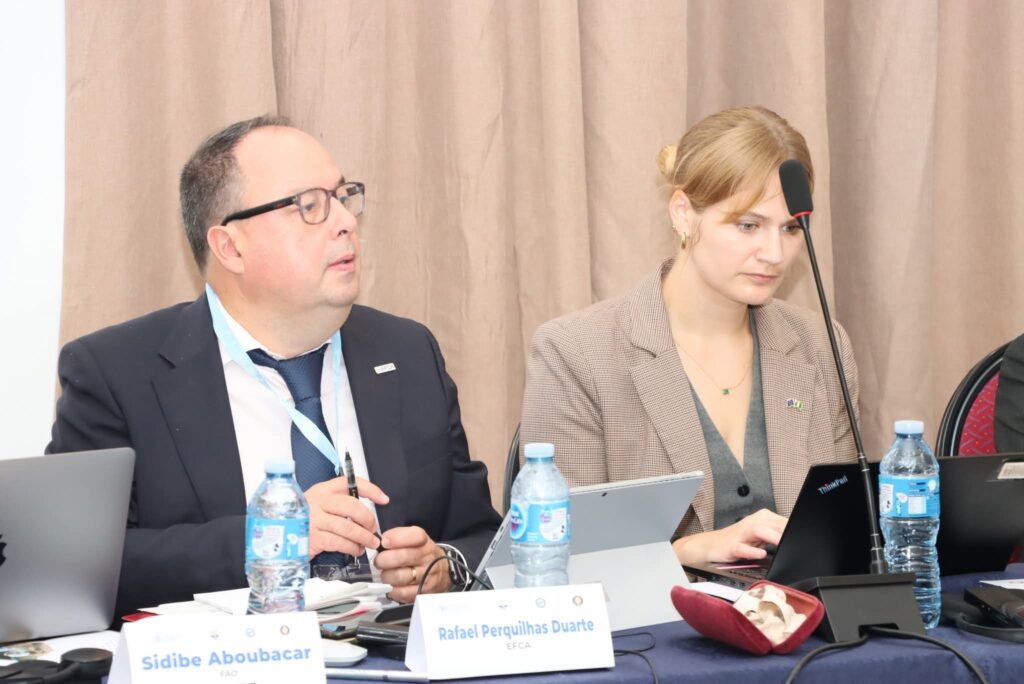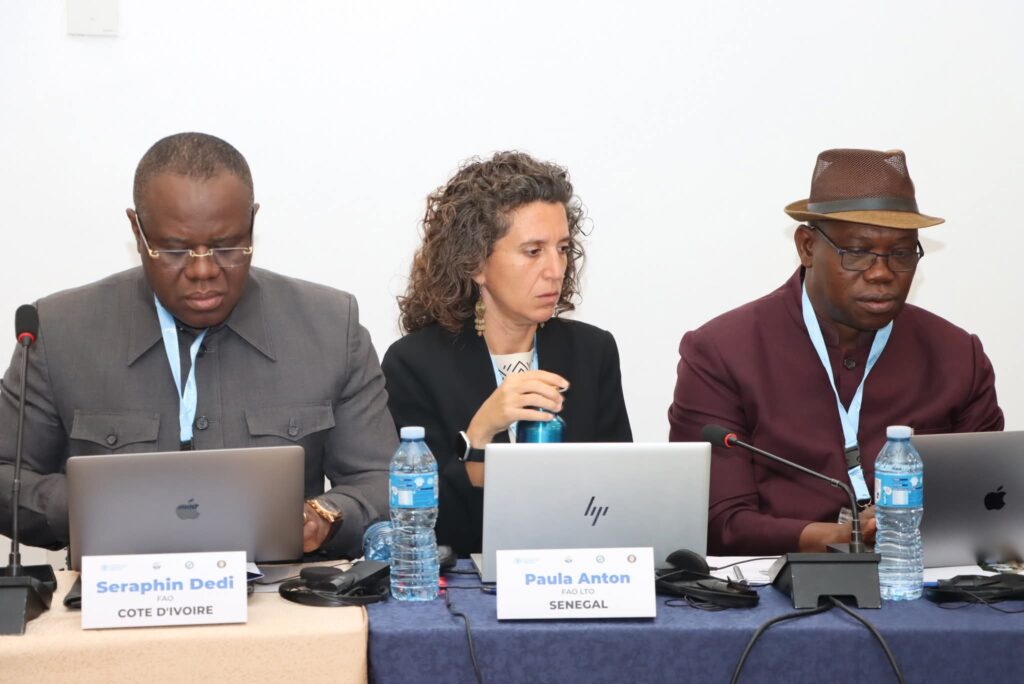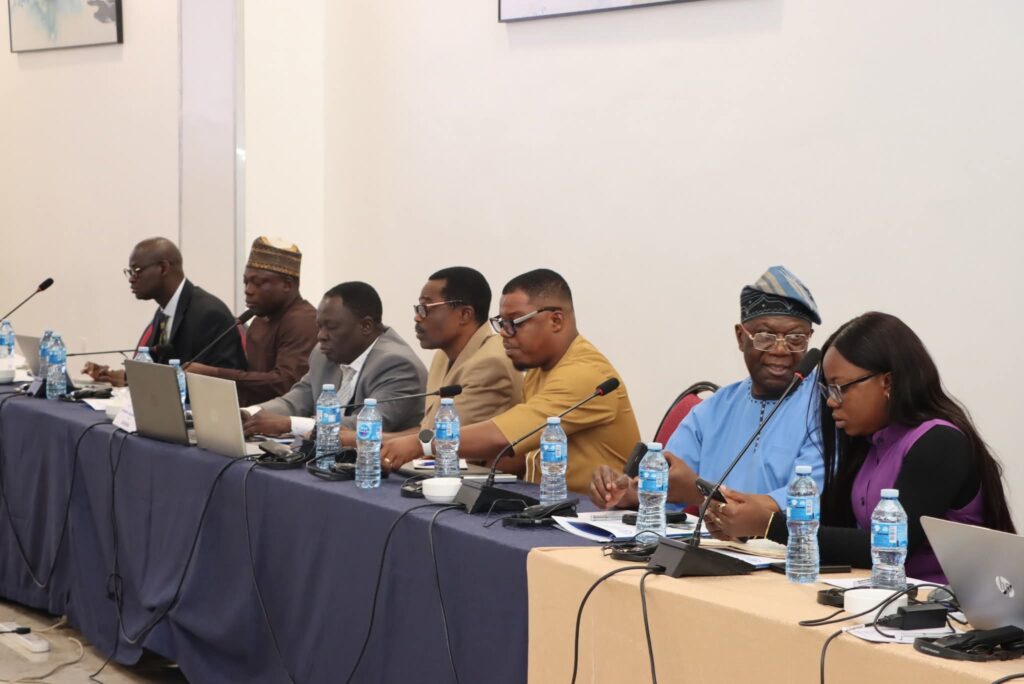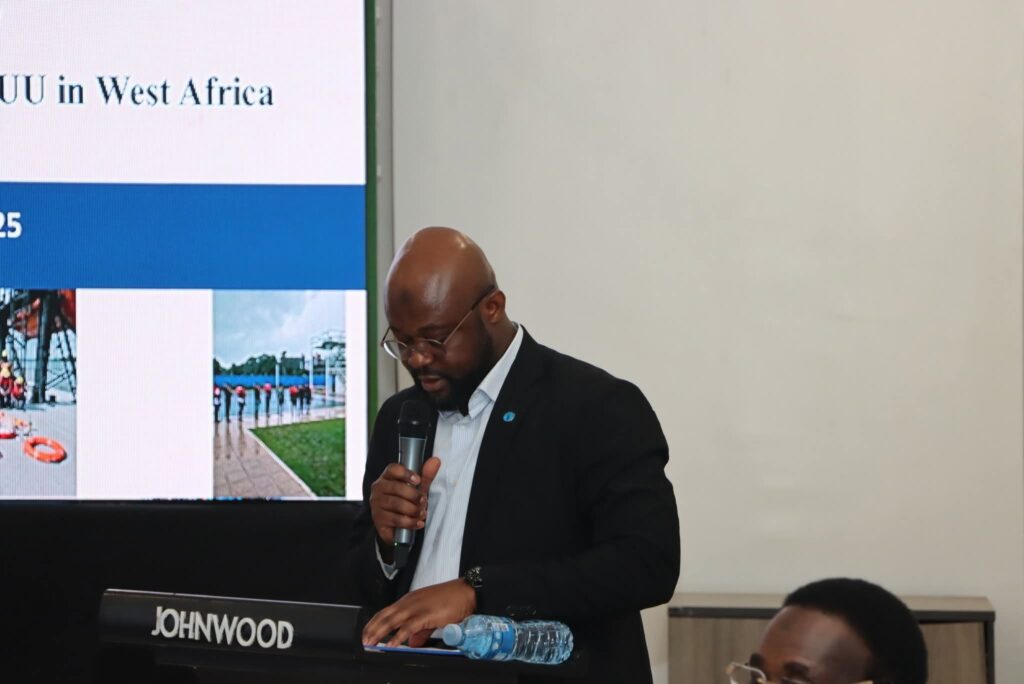Food Security and Marine Ecosystem in West Africa: FAO Strengthens Regional Coordination to Combat IUU Fishing Across the Region.
By Raymond Enoch
In a decisive move to safeguard marine biodiversity, strengthen food security, and protect livelihoods across West Africa, the Food and Agriculture Organization of the United Nations (FAO) has brought together key regional stakeholders to intensify efforts against Illegal, Unreported, and Unregulated (IUU) fishing.

To achieve this, the FAO convened a high-level Donors Roundtable in collaboration with the Economic Community of West African States (ECOWAS), the Federal Ministry of Marine and Blue Economy of Nigeria, and other development partners. The strategic gathering aimed to reinforce regional coordination mechanisms and mobilize critical funding and technical support to combat IUU fishing—one of the most pressing threats facing West Africa’s marine ecosystems.

IUU fishing continues to ravage coastal communities in West Africa, undermining food systems, draining economic resources, and degrading marine environments. According to the FAO, the region experiences one of the highest rates of IUU fishing globally, with estimates suggesting billions of dollars in revenue are lost annually due to unregulated activities by both local and foreign vessels.

“Illegal fishing not only jeopardizes the sustainability of fish stocks, but it directly affects the livelihoods of millions of West Africans who depend on the ocean for food, income, and cultural identity,” said Dr Husein Gadain FAO Representative to Nigeria and ECOWAS. “This meeting is a turning point in galvanizing coordinated regional action and mobilizing resources to tackle this crisis head-on.”
The Donors Roundtable emphasized the urgency of a harmonized regional response to IUU fishing, building on existing frameworks such as the ECOWAS Integrated Maritime Strategy and the FAO Port State Measures Agreement. Key areas of focus included enhancing surveillance, monitoring, and enforcement capacities among member states, while ensuring the protection and empowerment of small-scale fishers.

FAO reiterated its commitment to the “#4Betters” vision — Better Production, Better Nutrition, a Better Environment, and a Better Life — positioning the fight against IUU fishing as central to achieving sustainable development goals in the region.
Nigeria’s Federal Ministry of Marine and Blue Economy reaffirmed the country’s dedication to regional cooperation and responsible ocean governance. Minister Adegboyega Oyetola, represented at the event, noted that Nigeria is scaling up its national action plan against IUU fishing and stands ready to engage in joint enforcement operations with neighboring countries. “We recognize that the ocean is a shared resource, and regional solidarity is our strongest weapon against the scourge of illegal fishing. With the FAO’s support, we are building stronger institutional capacity to monitor our waters and ensure sustainable use of marine resources,” the minister stated.
The event also provided a platform to engage development partners, international donors, and technical agencies. FAO presented a roadmap for increased investment in fisheries governance, maritime surveillance infrastructure, capacity development, and legal reform to support effective implementation of anti-IUU strategies. Representatives from the African Union, the European Union, and key bilateral donors pledged their support, highlighting the importance of data sharing, digital tracking systems, and inclusive stakeholder engagement.
As the region faces increasing pressures from climate change, population growth, and overexploitation of natural resources, the urgency to protect marine ecosystems has never been greater. The FAO’s leadership in rallying stakeholders and aligning strategies marks a significant step toward reversing the tide of illegal fishing and ensuring long-term food security for millions across West Africa.
In the words of one FAO official: “The sea is not limitless. What we take today must be replenished for tomorrow. This is our shared responsibility.”
With renewed partnerships, greater political commitment, and unified regional action, West Africa is charting a new course toward marine sustainability and food sovereignty.








